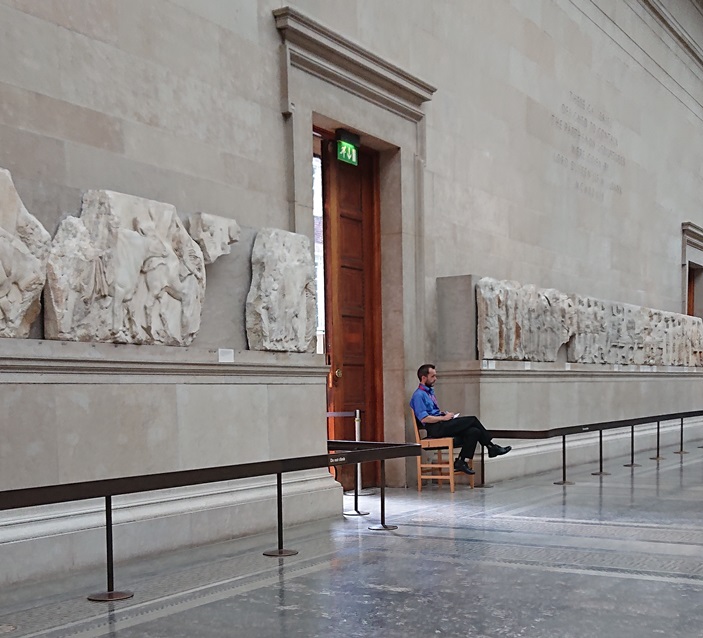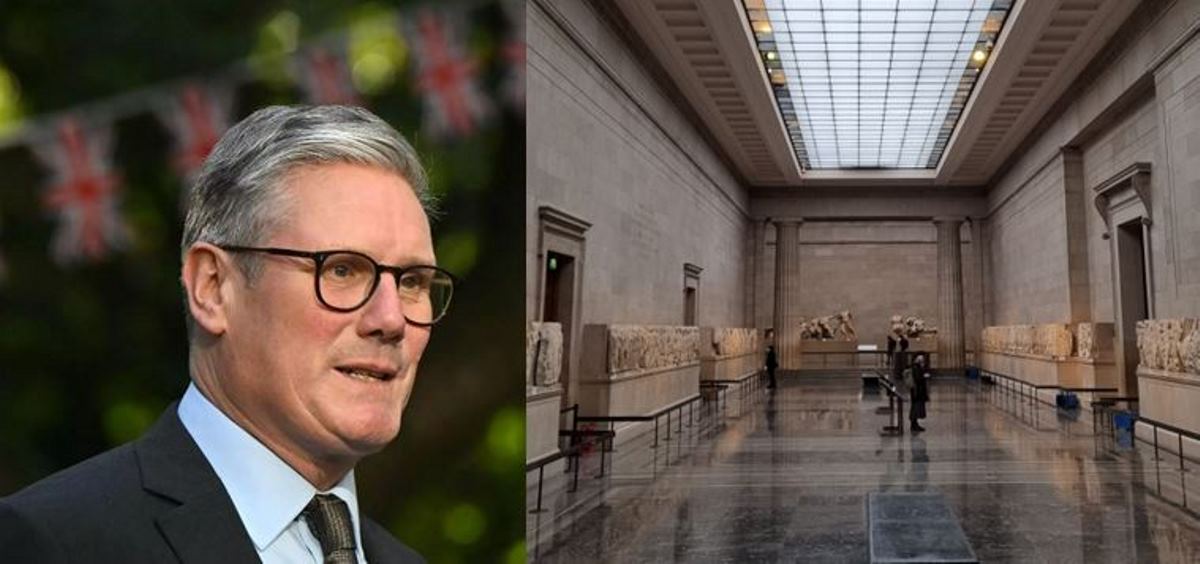Greece has finally taken possession of a chunk of the Elgin Marbles, and now holds renewed hopes of regaining the rest.
Italian President Giorgio Napolitano on Tuesday presented Greek authorities with a small piece of sculpture from the Parthenon kept in a museum in Palermo, Sicily, for the past 200 years.
The 2,500-year-old marble fragment was one of the works Scottish diplomat Lord Elgin removed from the ancient Acropolis in the early 19th century.
Elgin gave it to a friend in Sicily during a stop on his trip back to London, where the rest of his collection is still displayed in the British Museum — despite repeated Greek requests for its return.
Greek President Karolos Papoulias thanked Napolitano for the return of the fragment, which will stay in Athens on permanent loan from the Antonio Salinas Museum.
"As you know, Greece is seeking the return of the Parthenon Marbles (from the British Museum), so you are aware of the importance and the symbolism of this gesture," Papoulias said after talks with Napolitano Tuesday. "This gesture is especially appreciated."
The 14-by-13-inch artifact is a foot from a sculpture of Artemis, ancient goddess of the hunt, and originally stood above the entrance to the Parthenon as part of a 520-foot frieze that ran round the temple.
"When we opened the crate, the marble just shone ... like a gem," said Vivi Vassilopoulou, a senior Culture Ministry archaeologist.
It comes from a broken block, larger pieces of which survive in Athens and London, and will be displayed at a new museum designed to host all the Acropolis finds — including the Elgin Marbles.
An Italian official said a museum in The Vatican has agreed to follow up the gesture next month by returning two pieces of the Parthenon sculptures in its collections.
"I hope this will at least open the way (for the return of the Elgin Marbles)," said archaeologist Louis Godart, Napolitano's cultural adviser.
Culture Minister Michalis Liapis said the loan from Palermo was a boost to Greece's campaign to reunite all the Parthenon works at the new museum at the foot of the Acropolis.
"The positive responses we received in our international efforts encourage us to continue until we have achieved our target," he said.
The British Museum argues it legally acquired the Elgin Marbles, which form an integral part of its collections and are easily accessible to visitors from all over the world
The Palermo piece is the second fragment of the Parthenon marbles returned to Greece: The University of Heidelberg in Germany sent back a tiny fragment of the frieze two years ago.
The Parthenon was built between 447 and 432 B.C. in honor of Athena, ancient Athens' patron goddess, and was decorated with hundreds of sculpted figures of gods and participants in a religious procession. The marble temple survived virtually intact until 1687, during the Ottoman occupation of Greece, when a Venetian army besieging the Acropolis blew it up with cannon fire.
The Venetians started the plunder that was continued by later Western visitors, culminating in Elgin's visit.
About half of the surviving works are now in London, while museums in France, Germany, Austria and Denmark also own small fragments.
The $190 million Acropolis Museum is set to open early next year.
Designed by U.S.-based architect Bernard Tschumi in collaboration with Greece's Michalis Photiadis, the glass and concrete building will contain more than 4,000 ancient works.





Comments powered by CComment